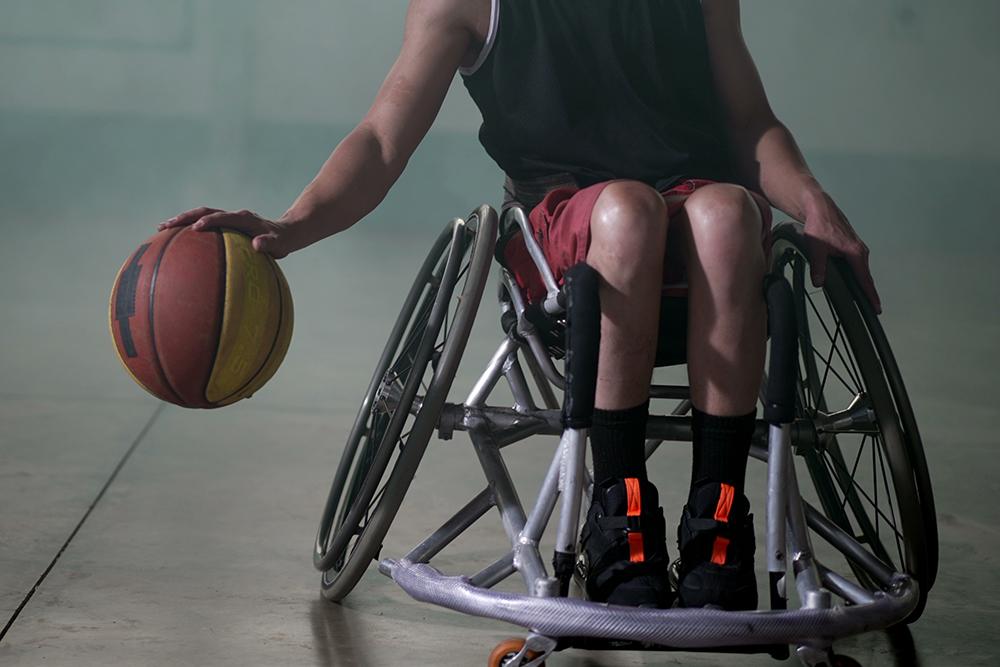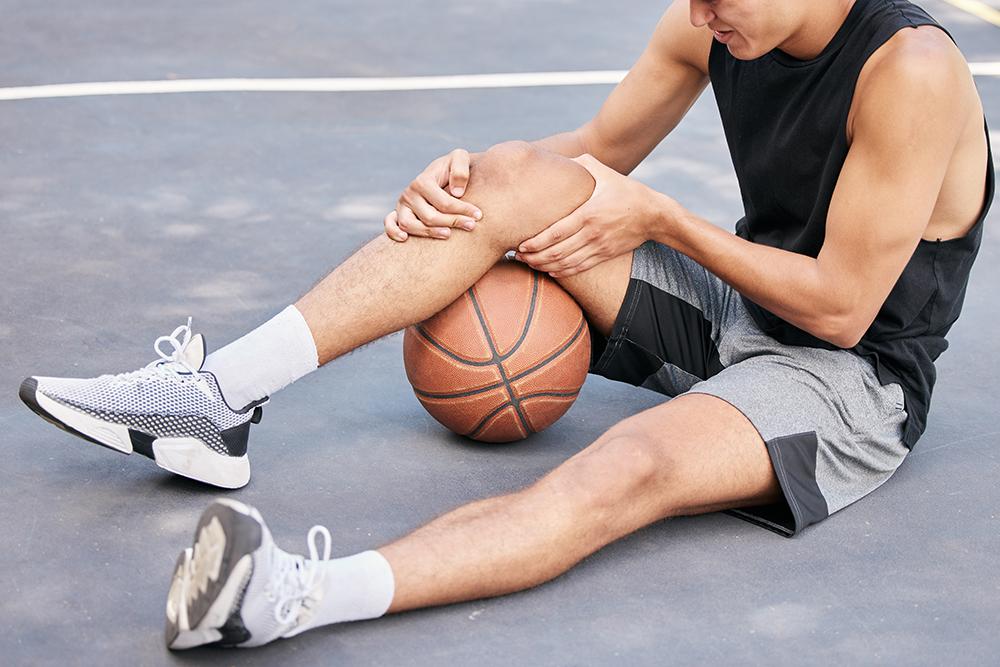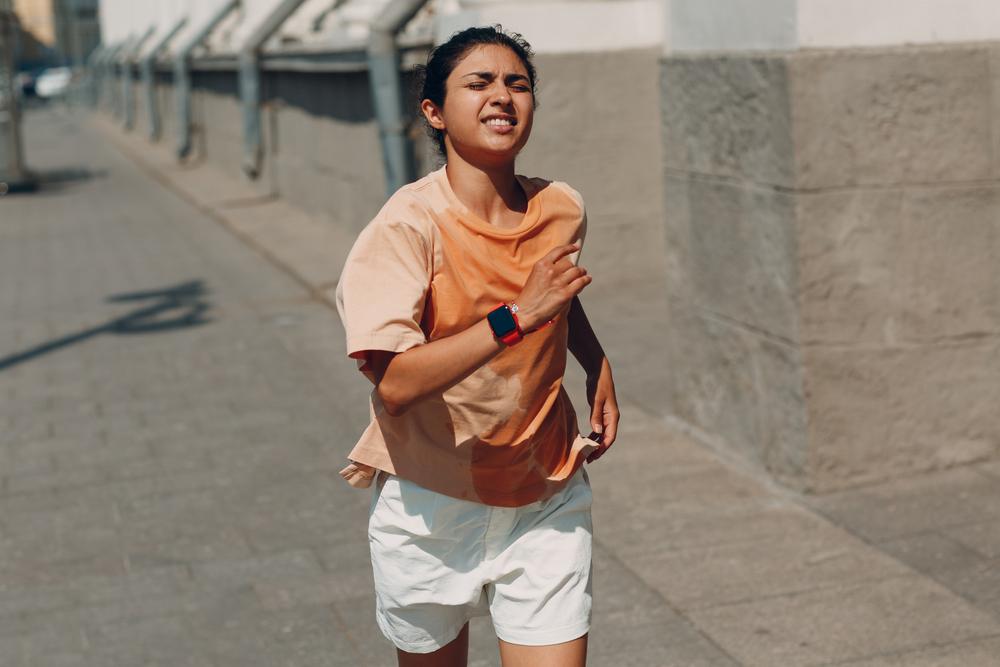Suffering an injury and a severe medical condition while trying to make the Olympic team wasn’t something skeleton and Team USA athlete, Stephen Garbett, was planning on. After ending the season with a surgery, Garbett initiated a plan of action to get himself back in the game.
In the following interview with TrueSport, Garbett breaks down how a combination of self-reflection, goal-setting, and support from his community gave him the inspiration he needed to fully recover from his injuries and work his way back up to the top of his sport.
Question: What is the biggest takeaway that you’ve learned from being sidelined by an injury?
Stephen: Biggest takeaway is that it happens to everybody.
It happens to all of us in life – whether it’s business, sports, love, we all have setbacks. People that end up on top are the people that get back up the quickest and work the hardest.
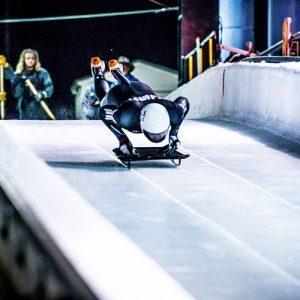
Question: What kind of impact did your injury have on your mindset as an athlete?
Stephen: It had a lot of impact on my mindset. Once you get injured, there’s a lot of things that go through your head.
Is my career over? Can I make it back from this?
You have a lot of negative thoughts that start rushing into your mind. But, keeping that positive mindset is key. Surround yourself with a positive group, stay positive on the situation, and don’t look at the negatives.
Your ultimate goal is to get back on the top, by setting realistic goals where you break it down slowly.
I told myself, ‘Alright, today’s goal is to learn how to move my toes right again. Tomorrow’s goal is to move my ankle correctly again.’
Have those goals in place so whenever you achieve one, you can celebrate that you’ve made it to that goal, which is the smaller goal towards your larger goal.
Question: Did you ever start to doubt your comeback as an athlete during your injury recovery?
Stephen: I had some thoughts, but I did anything and everything I could to stay positive. When I did have those thoughts, I made sure I went where I could stay in the positive attitude.
A lot of times for me – I love nature, so I’d get up in the mountains, I’d get away. I’d just take a breather, and it would help me reset. Having that escape and knowing what my escape was, was a big help in me staying positive.
Question: How did you cope with the stress that comes with an injury?
Stephen: The stress levels definitely go through the roof when you are injured because you have the pressure from your team, and they want you back on the court as quick as possible. You have the pressure from your fans, your family, your sponsors who are like, ‘When are you going to be back out there?’ You have a lot of different angles coming at you, but you have to just be able to slow down and breathe.
That’s where I go out into nature. You just slow down, you calm yourself, and then you get back into it and you work hard.
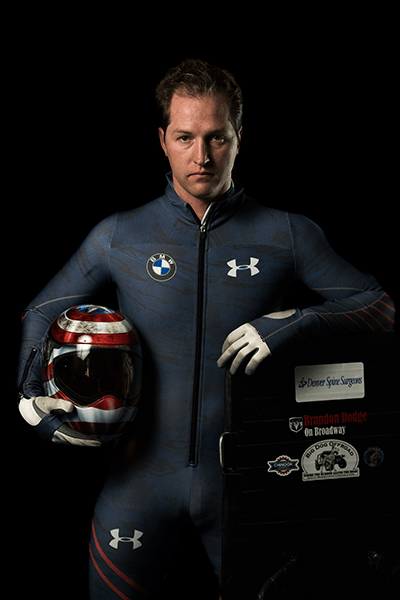 Question: What role does mental toughness play in sports and recovery?
Question: What role does mental toughness play in sports and recovery?
Stephen: Mental toughness is one of the biggest assets in sports, especially when you get to this level.
That mental aspect is the difference between first and second. Your mental ability to stay focused, to train hard is important, especially at this level.
Question: Why is it important for young athletes to develop skills that enhance the mental aspect of sport?
Stephen: The hardships you have at a young age are going to be different than what you have at elite level. But if you can develop those skills throughout the whole process, you’re going to be a lot better able to handle the adversity that comes your way when you’re at the elite levels.
So many of us are our own worst enemy. We tell ourselves we can’t do it. We say it’s out of reach, but if you have that positive mindset and you believe even when others don’t believe, you can do amazing things.
Question: Who was key in helping you overcome the new challenges you faced with your injury?
Stephen: The key people were my family and friends.
I have a beautiful girlfriend who was very supportive of me during the times when I couldn’t do much. I have my parents who were always there telling me that they were behind me no matter what and that they wanted to get me back on top. I had my sponsors and everybody else who were also there saying, ‘Hey, we want you back up. We want you there healthy, so let us know what we can do.’
I had a lot of good support from all of them, as well as my coaches. My coaches said, ‘We want to make sure we do this right because we know we can get you back and we want you back.’
Having their support made a lot of difference.
Question: What can a personal community, including parents, coaches, teammates and friends, do to support a young athlete as they recover from an injury?
Stephen: The biggest thing that they can do is just be there. Be positive. Know that athletes are going through a rough time and yes, some days are going to be bad because they’re frustrated and all they want to do is be able to walk. All they want to do is be able to run. All they want to do is be able to sprint. But if that community is there, just showing support makes a big difference.
Say, ‘Hey, we’re here for you. Let us know what you need. Let me know how we can help.’
As long as young athletes have those kind of people, it will make it a lot easier.
And as an athlete, if you don’t have those kind of people, find them.
Question: What was the driving force behind your resiliency through your recovery period?
Stephen: There was actually a few things. The biggest motivating factor behind mine was my grandma, who’s battling cancer. I saw her struggling and battling and working hard every day, and that gave me the energy that I needed when I was struggling. When I was down, when it hurt to walk, when it hurt to move, I looked over and I saw her doing stuff just as much. I knew she was in just as much pain, and it just gave me that extra edge.
Question: What kind of advice would you give to young athletes after they experience a setback, whether that is through an injury or a tough loss in a competition?
Stephen: I’d ask them, ‘What did you learn from the situation? How did this affect you?’
I’d take those negatives, take those positives, and then reevaluate their goals and set them up so that they’ll pass the next time. That way they’re successful the next time, because as long as they’re learning from the situation, they will be able to get better.

